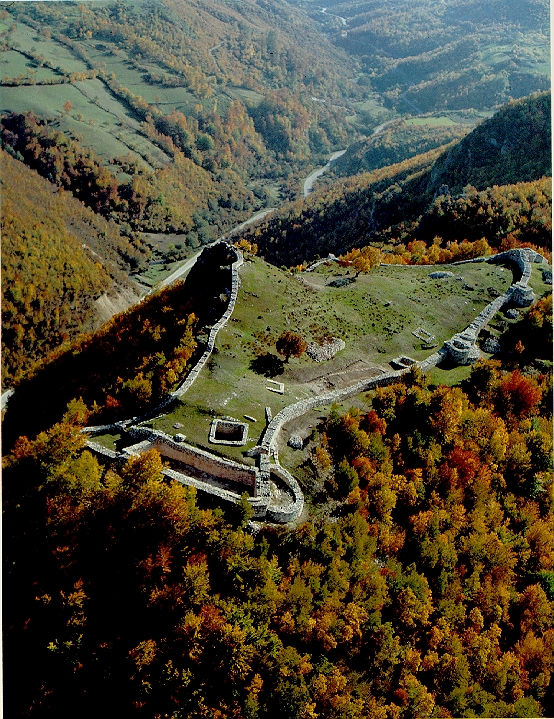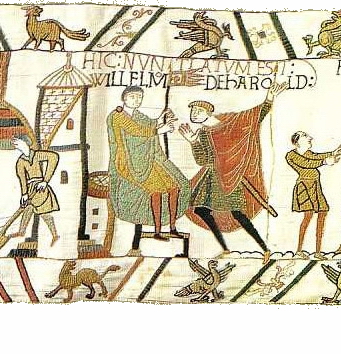|
Roman Catholic Diocese Of Sapë
The Diocese of Sapë ( la, Dioecesis Sappensis, sq, Dioqeza e Sapës) is a Latin Church ecclesiastical territory or diocese of the Catholic Church in Northern Albania. It is a suffragan diocese in the ecclesiastical province of the metropolitan Archdiocese of Shkodër-Pult. The diocese is named after the town of Sapë (Sappa), which is located near the Drin, southeast of Lake Scutari. However, the cathedral of the diocese is Katedralja e Nënë Terezja, in the town of Vau-Dejës, Shkodër County. The former cathedral is Kisha e Shën Gjergjit, in Nënshat in the same county. The diocese is one of six Catholic jurisdictions in Albania. It is located in the vicinity of Lake Scutari, at the river basin of Drin. Statistics and extent , it pastorally served 70,701 Catholics (34.9% of 202,800 total) on 2,544 km2 in 32 parishes with 19 priests (11 diocesan, 8 religious), 1 deacon, 60 lay religious (9 brothers, 51 sisters) and 2 seminarians. The ecclesiastical students ... [...More Info...] [...Related Items...] OR: [Wikipedia] [Google] [Baidu] |
Albania
Albania ( ; sq, Shqipëri or ), or , also or . officially the Republic of Albania ( sq, Republika e Shqipërisë), is a country in Southeastern Europe. It is located on the Adriatic and Ionian Seas within the Mediterranean Sea and shares land borders with Montenegro to the northwest, Kosovo to the northeast, North Macedonia to the east and Greece to the south. Tirana is its capital and largest city, followed by Durrës, Vlorë, and Shkodër. Albania displays varied climatic, geological, hydrological, and morphological conditions, defined in an area of . It possesses significant diversity with the landscape ranging from the snow-capped mountains in the Albanian Alps as well as the Korab, Skanderbeg, Pindus and Ceraunian Mountains to the hot and sunny coasts of the Albanian Adriatic and Ionian Sea along the Mediterranean Sea. Albania has been inhabited by different civilisations over time, such as the Illyrians, Thracians, Greeks, Romans, Byzantines, Veneti ... [...More Info...] [...Related Items...] OR: [Wikipedia] [Google] [Baidu] |
Nënshat
Nënshat is a settlement in the former Hajmel municipality, Shkodër County, northern Albania. At the 2015 local government reform it became part of the municipality Vau i Dejës Vau i Dejës (), English: Deja's Ford, is a town and a municipality in Shkodër County, northwestern Albania. It was formed at the 2015 local government reform by the merger of the former municipalities Bushat, Hajmel, Shllak, Temal, Vau i Dejës, .... References Dioqeza e Sapes Carmeli Kalaja Sapes Hajmel Populated places in Vau i Dejës Villages in Shkodër County {{Shkodër-geo-stub ... [...More Info...] [...Related Items...] OR: [Wikipedia] [Google] [Baidu] |
Suffragan
A suffragan bishop is a type of bishop in some Christian denominations. In the Anglican Communion, a suffragan bishop is a bishop who is subordinate to a metropolitan bishop or diocesan bishop (bishop ordinary) and so is not normally jurisdictional in their role. Suffragan bishops may be charged by a metropolitan to oversee a suffragan diocese and may be assigned to areas which do not have a cathedral of their own. In the Catholic Church, a suffragan bishop instead leads a diocese within an ecclesiastical province other than the principal diocese, the metropolitan archdiocese; the diocese led by the suffragan is called a suffragan diocese. Anglican Communion In the Anglican churches, the term applies to a bishop who is assigned responsibilities to support a diocesan bishop. For example, the Bishop of Jarrow is a suffragan to the diocesan Bishop of Durham. Suffragan bishops in the Anglican Communion are nearly identical in their role to auxiliary bishops in the Roman Catholic ... [...More Info...] [...Related Items...] OR: [Wikipedia] [Google] [Baidu] |
Roman Catholic Diocese Of Sardë
Roman or Romans most often refers to: *Rome, the capital city of Italy *Ancient Rome, Roman civilization from 8th century BC to 5th century AD *Roman people, the people of ancient Rome *'' Epistle to the Romans'', shortened to ''Romans'', a letter in the New Testament of the Christian Bible Roman or Romans may also refer to: Arts and entertainment Music * Romans (band), a Japanese pop group * ''Roman'' (album), by Sound Horizon, 2006 * ''Roman'' (EP), by Teen Top, 2011 *" Roman (My Dear Boy)", a 2004 single by Morning Musume Film and television * Film Roman, an American animation studio * ''Roman'' (film), a 2006 American suspense-horror film * ''Romans'' (2013 film), an Indian Malayalam comedy film * ''Romans'' (2017 film), a British drama film * ''The Romans'' (''Doctor Who''), a serial in British TV series People *Roman (given name), a given name, including a list of people and fictional characters *Roman (surname), including a list of people named Roman or Romans *Ῥωμ� ... [...More Info...] [...Related Items...] OR: [Wikipedia] [Google] [Baidu] |
Pope Innocent VIII
Pope Innocent VIII ( la, Innocentius VIII; it, Innocenzo VIII; 1432 – 25 July 1492), born Giovanni Battista Cybo (or Cibo), was head of the Catholic Church and ruler of the Papal States from 29 August 1484 to his death in July 1492. Son of the viceroy of Naples, Battista spent his early years at the Neapolitan court. He became a priest in the retinue of Cardinal Calandrini, half-brother to Pope Nicholas V (1447–55), Bishop of Savona under Pope Paul II, and with the support of Cardinal Giuliano Della Rovere. After intense politicking by Della Rovere, Cibo was elected pope in 1484. King Ferdinand I of Naples had supported Cybo's competitor, Rodrigo Borgia. The following year, Pope Innocent supported the barons in their failed revolt. In March 1489, Cem, the captive brother of Bayezid II, the sultan of the Ottoman Empire, came into Innocent's custody. Viewing his brother as a rival, the Sultan paid Pope Innocent not to set him free. The amount he paid to Pope Innocent w ... [...More Info...] [...Related Items...] OR: [Wikipedia] [Google] [Baidu] |
Serbian Empire
The Serbian Empire ( sr, / , ) was a medieval Serbian state that emerged from the Kingdom of Serbia. It was established in 1346 by Dušan the Mighty, who significantly expanded the state. Under Dušan's rule, Serbia was the major power in the Balkans and a multi-lingual empire that stretched from the Danube to the Gulf of Corinth, with its capital in Skopje. He also promoted the Serbian Archbishopric to the Serbian Patriarchate. His son and successor, Uroš the Weak, lost most of the territory conquered by Dušan, hence his epithet. The Serbian Empire effectively ended with the death of Uroš V in 1371 and the break-up of the Serbian state. Some successors of Stefan V claimed the title of Emperor in parts of Serbia until 1402, but the territory in Greece was never recovered. History Establishment Stefan Dušan was the son of the Serbian king Stefan Dečanski (r. 1322–1331). After his father's accession to the throne, Dušan was awarded with the title of "young king". ... [...More Info...] [...Related Items...] OR: [Wikipedia] [Google] [Baidu] |
Kingdom Of Serbia (medieval)
The Kingdom of Serbia ( sr, / ), or the Serbian Kingdom ( sr, / ), was a medieval Serbian state that existed from 1217 to 1346 and was ruled by the Nemanjić dynasty. The Grand Principality of Serbia was elevated with the regal coronation of Stefan Nemanjić as king, after the reunification of Serbian lands. In 1219, Serbian Orthodox Church was reorganized as an autocephalous archbishopric, headed by Saint Sava. The kingdom was proclaimed an empire in 1346, but kingship was not abolished as an institution, since the title of a king was used as an official designation for a co-ruler of the emperor. Background The regal coronation of Stefan Nemanjić in 1217 was not a novelty in Serbian history, since there had already been a long tradition of kingship among previous Serbian rulers, centered in Duklja (11th century). During the Nemanjić era, the previous Serbian kingdom in Duklja was referred to as the "Old Kingdom of our forefathers" and such views were also refle ... [...More Info...] [...Related Items...] OR: [Wikipedia] [Google] [Baidu] |
Serbian Grand Principality
Grand Principality of Serbia ( sr, Великожупанска Србија, Velikožupanska Srbija), or Rascia ( sr, Рашка, Raška), was a medieval Serbian state that existed from the second half of the 11th century up until 1217, when it was transformed into the Kingdom of Serbia. Initially, the Grand Principality of Serbia emerged in the historical region of Raška ( sr-Cyrl, Рашка; la, Rascia), and gradually expanded, during the 12th century, encompassing various neighboring regions, including territories of modern Montenegro, Herzegovina, and southern Dalmatia. It was founded by Grand Prince Vukan, who initially ( 1082) served as regional governor of Raška, appointed by King Constantine Bodin. During Byzantine-Serbian wars ( 1090) Vukan gained prominence and became self-governing ruler in inner Serbian regions. He founded the Vukanović dynasty, that ruled the Grand Principality. Through diplomatic ties with the Kingdom of Hungary, Vukan′s successors managed ... [...More Info...] [...Related Items...] OR: [Wikipedia] [Google] [Baidu] |
Duklja
Duklja ( sh-Cyrl, Дукља; el, Διόκλεια, Diokleia; la, Dioclea) was a medieval South Slavic state which roughly encompassed the territories of modern-day southeastern Montenegro, from the Bay of Kotor in the west to the Bojana River in the east, and to the sources of the Zeta and Morača rivers in the north. First mentioned in 10th– and 11th century Byzantine chronicles, it was a vassal of the Bulgarian Empire between 997 and 1018, and then of the Byzantine Empire until it became independent in 1040 under Stefan Vojislav ( 1034–43) who rose up and managed to take over territories of the earlier Serbian Principality, founding the Vojislavljević dynasty. Between 1043 and 1080, under Mihailo Vojislavljević ( 1050–81), and his son, Constantine Bodin ( 1081–1101), Duklja saw its apogee. Mihailo was given the nominal title ''King of Slavs'' by the Pope after having left the Byzantine camp and supported an uprising in the Balkans, in which his son Bodin pla ... [...More Info...] [...Related Items...] OR: [Wikipedia] [Google] [Baidu] |
Pope Alexander II
Pope Alexander II (1010/1015 – 21 April 1073), born Anselm of Baggio, was the head of the Roman Catholic Church and ruler of the Papal States from 1061 to his death in 1073. Born in Milan, Anselm was deeply involved in the Pataria reform movement. Elected according to the terms of his predecessor's bull, ''In nomine Domini'', Anselm's was the first election by the cardinals without the participation of the people and minor clergy of Rome. He also authorized the Norman Conquest of England in 1066. Early life and work Anselm was born in the parish of Cesano Boscone in the town of Corsico some 7 km (5 mi) from Milan of a noble family. The family took its name from Baggio. a suburb of Milan, where the family held the office of "captain". According to the ''Liber pontificalis'', his father's name was Anselmus or Ardericus. Contemporary sources do not provide any information on where Anselm might have obtained his education. It was traditionally believed that An ... [...More Info...] [...Related Items...] OR: [Wikipedia] [Google] [Baidu] |
Minorites
, image = FrancescoCoA PioM.svg , image_size = 200px , caption = A cross, Christ's arm and Saint Francis's arm, a universal symbol of the Franciscans , abbreviation = OFM , predecessor = , merged = , formation = , founder = Francis of Assisi , founding_location = , extinction = , merger = , type = Mendicant Order of Pontifical Right for men , status = , purpose = , headquarters = Via S. Maria Mediatrice 25, 00165 Rome, Italy , location = , coords = , region = , services = , membership = 12,476 members (8,512 priests) as of 2020 , language = , sec_gen = , leader_title = Motto , leader_name = ''Pax et bonum'' ''Peace and llgood'' , leader_title2 = Minister General , leader_name2 = ... [...More Info...] [...Related Items...] OR: [Wikipedia] [Google] [Baidu] |



